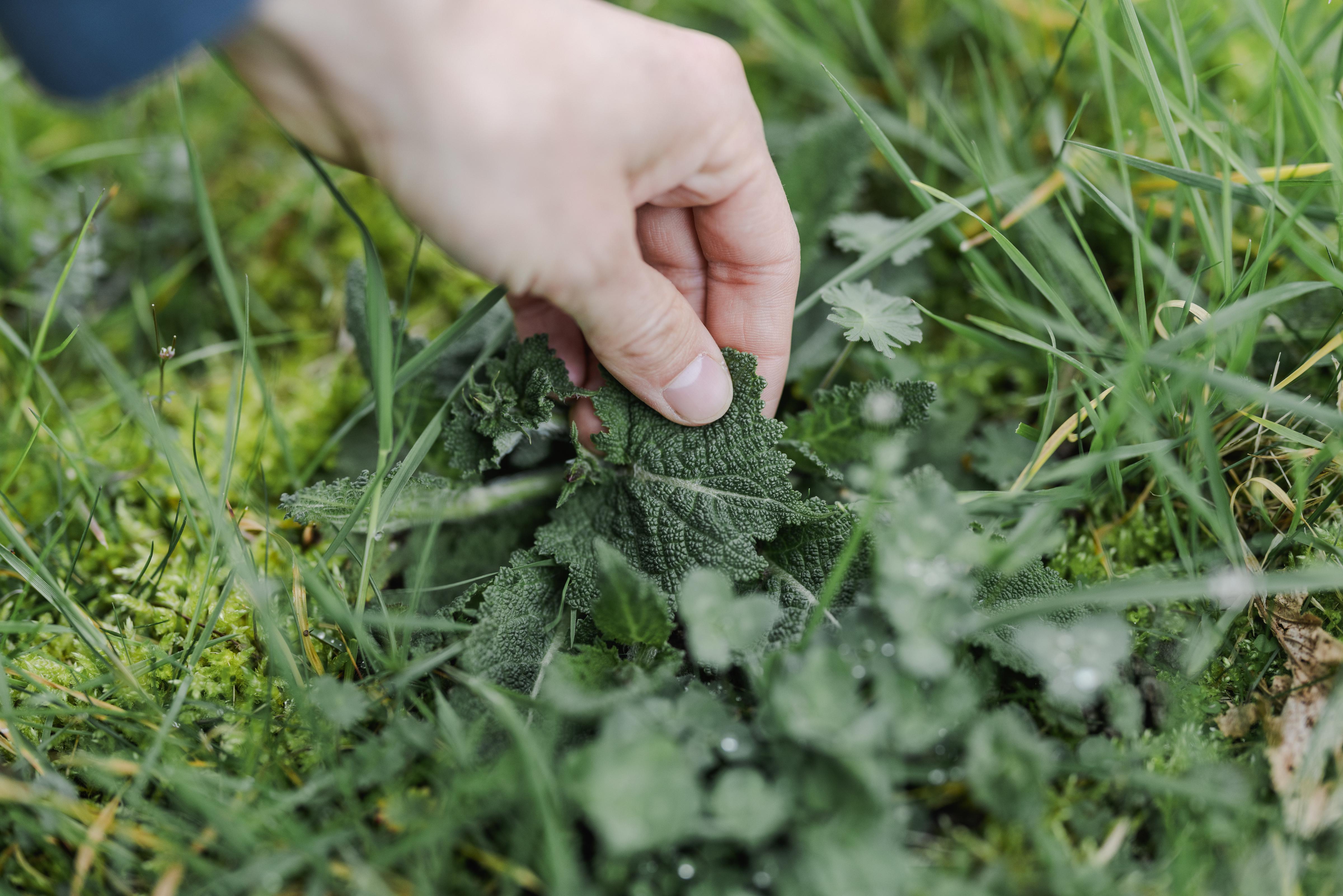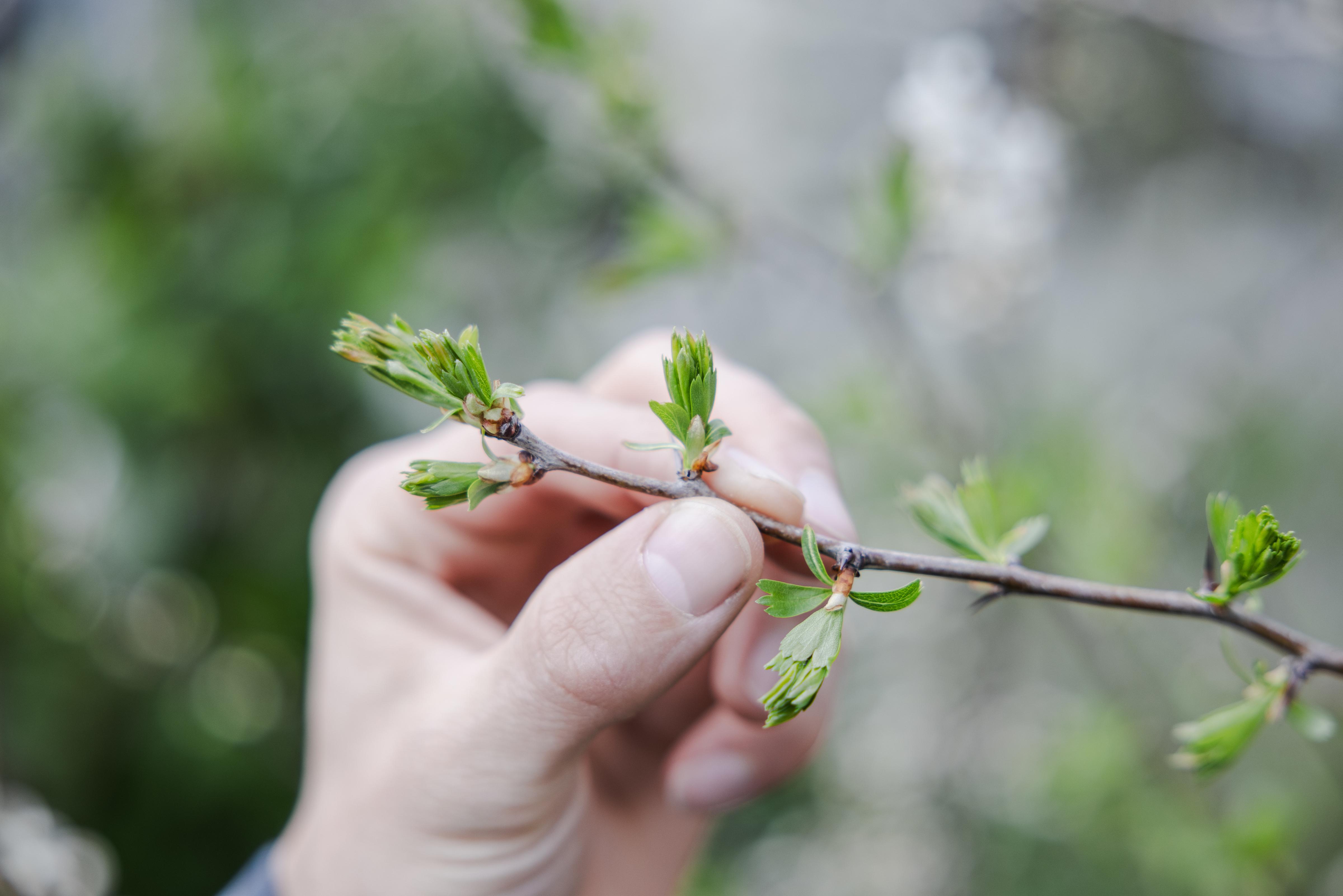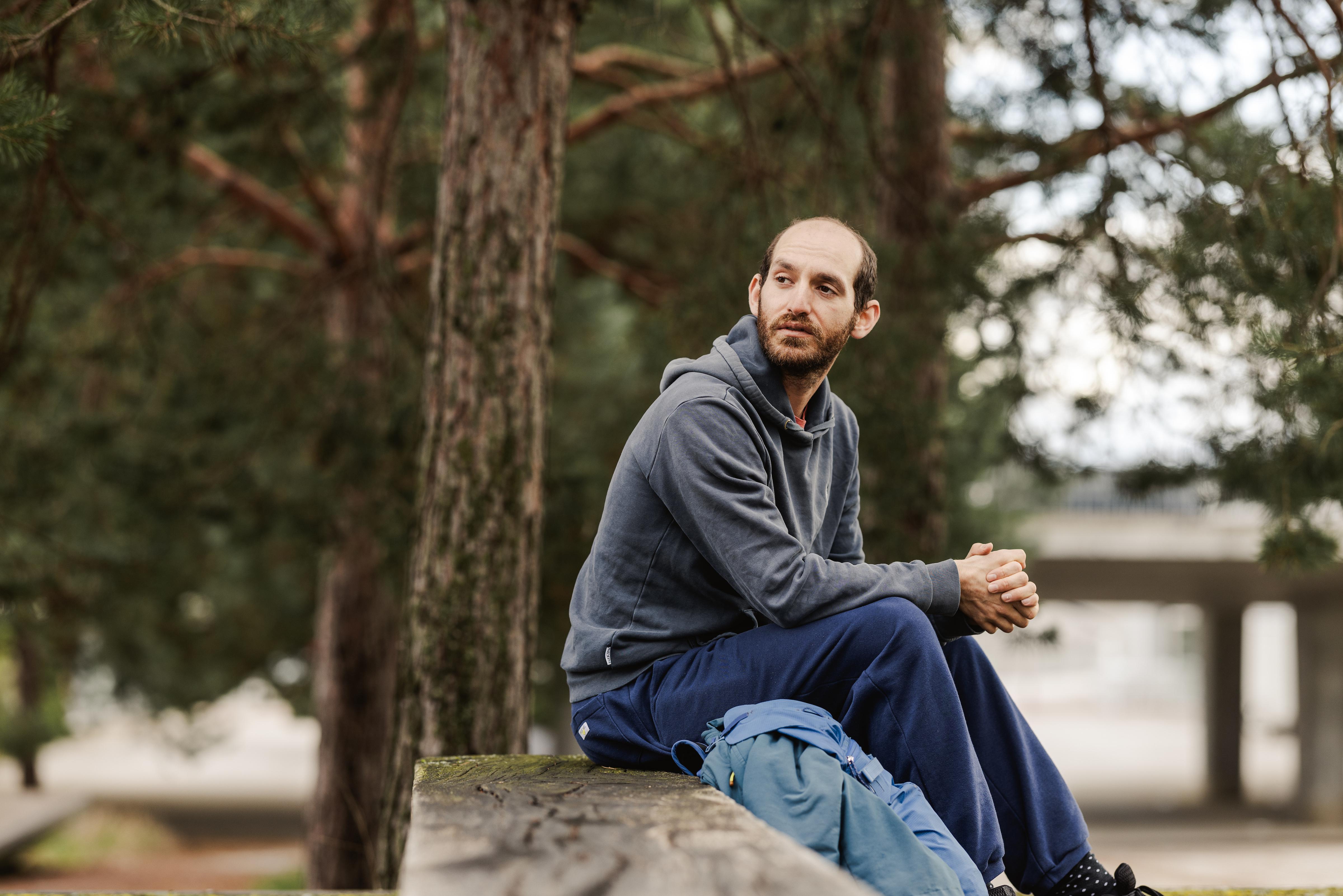The campus plant whisperer

Guillaume Rueff © 2024 EPFL, Niels Ackermann / Lundi13
Guillaume Rueff, EPFL’s Community Engagement Project Manager, runs walking tours of the wild edible plants found on campus. He describes the events as an opportunity to “remind people that nature exists, and that humans are a part of it.”
Touring the campus with Guillaume Rueff is like opening up an encyclopedia hidden inside an old poetry anthology. After just a few steps, he’ll stop to point out something that, to the uninitiated, looks like an unremarkable weed. But, in fact, it’s an aromatic herb or a vitamin-rich vegetable – part of a vast family with complex scientific names. Rueff will spend a quarter of an hour detailing the abundant plant life growing in a small patch of ground before moving on. Then, a little further on, he’ll pause again to share his insights into a clump of thorny bushes, explaining their benefits or dangers, the myths behind them, and the chemical processes at work.
Each week, the almost 30-year-old Rueff leads a small group of willing participants on a walking tour, introducing them to the wild edible plants found on campus. “We’re in the middle of a city here, so the soil and air are thick with pollution,” he says. “I wouldn’t recommend eating these plants. If you ate them every day, you’d end up as sick as the urban environment.”
“As we walk around campus, I like to point out some of the more enigmatic species: plants whose toxicity varies depending on whether they’re raw or cooked, or that can become toxic if they aren’t dried properly,” explains Rueff, who also discusses parasitic and zoonotic infections, “even though you’re more like to get hit by a car than die from echinococcosis.”
Rueff believes that “even a single plant growing between two flagstones is an interesting talking point.” His goal? To reconnect people with nature.
Perhaps people would pay more attention to their environment if they knew what was around them.
Imparting knowledge
Rueff likes to collect samples during his forays out into the mountains. “I never bring back more than three species I’m unfamiliar with,” he explains. “That way, I have the time to really learn about each one. I also collect samples of plants I am familiar with just for the enjoyment of cooking and eating them. Over time, I’ve learned there are very few things you can’t eat.”
For Rueff, learning is a process that engages senses other than sight. While shape and color are important, he also identifies species through touch, smell and taste: in some cases, he’ll stroke the underside of leaf to tell two closely related species apart, or break a stem under his nose to catch the scent before it dissipates.

He also explains some important ground rules to the people who accompany him on his walks: “If there are fewer than 15 or so plants in one location, you shouldn’t pick any or they won’t grow back the following year. If there are more, you can take no more than 10% of what’s there – and only what you can eat that day, in order to avoid waste and destroying the vegetation.” Seasonal factors also come into play: during the flowering season, it’s important not to pick the flowers, which “are a key source of food for nectar-feeding insects.” Removing the flowers at this stage prevents the fruit from forming later in the year.
Making connections
As part of his role within EPFL’s Vice Presidency for Responsible Transformation, Rueff reviews grant requests from sustainability- and diversity-focused nonprofits. But he’s rarely to be found sitting at his desk. He prefers to head out into the community and connect with people face to face – ideally outdoors.
“I studied sustainability here at EPFL,” he explains. “But with hindsight, I came to realize that I knew nothing about the living world. My knowledge was anything but ‘sustainable.’ That got me thinking about the value of my studies. If you aren’t familiar with nature and you don’t understand your place within it, you can’t see the world through a sustainable lens. After all, we’re living, breathing beings just like any other.”
After completing a Bachelor’s degree in civil engineering and a Master’s degree in sustainability, Rueff embarked on what he calls a “stereotypical” career as a startup co-founder. But a combination of circumstances prompted him to take a different path. The pandemic saw a number of his business ventures end up “in the trash can.” During his civilian service, Rueff had gained experience in community work, and he subsequently served as an educator for disadvantaged young people. And later, a serious climbing accident left him immobilized for several months.
“Before my accident, I’d started reading books about plants,” he says. “Then I was told I might never walk again. I decided there was no point in learning about plants if I couldn’t actually get out into the open and see them.” Following a long recovery period, Rueff slowly began to regain his physical faculties. For the past year, he’s been indulging his passion for plants by taking an online course, fitting several hours of reading a week around his forays into nature.

“I enjoy reading scholarly literature,” says Rueff. “Research into the use of plants as food remains thin on the ground. It’s a relatively obscure field because we still don’t know enough about the organic chemistry at play in the human diet. Much of the detox information we see and hear is pure marketing with little or no scientific basis, and many experts continue to push traditional food-related theories that have long since been debunked. In fact, eating too much of some of these plants can harm your liver. That said, our understanding is advancing and I think the body of research in this area will grow with time.”
A chasm between technology and nature
In his current role, Rueff draws on his familiarity with EPFL, the knowledge he gained during his time as a student, and his experience as an educator. He also sees value in building on his passion for plants – something that has become much more than just a hobby: “EPFL is a very high-tech university. Personally, I think there’s a huge chasm between technology and nature. It would be misguided to think we can solve environmental and social challenges through technology alone.”
Technology has driven incredible advances in human health. But it’s also one of the reasons why our modern lifestyles are incompatible with planetary boundaries.
“Some might describe my walking tours as rustic or naive,” admits Rueff. “But the path ahead is long and hard, and I see them as an important first step. For me, they’re an opportunity to remind people that nature exists, and that humans are a part of it. We depend on nature for our survival. To ignore that fact is to threaten our very future as a species. The natural world can cope perfectly well without humanity. Nature has already survived multiple mass-extinction events.”

Rueff’s fascination with plants is the perfect counterpoint to his role facilitating sustainability projects: “If we want to change society, we have to change the values and paradigms that govern our lifestyles.” Rueff is very much playing his part in that process – step by step, seed by seed.